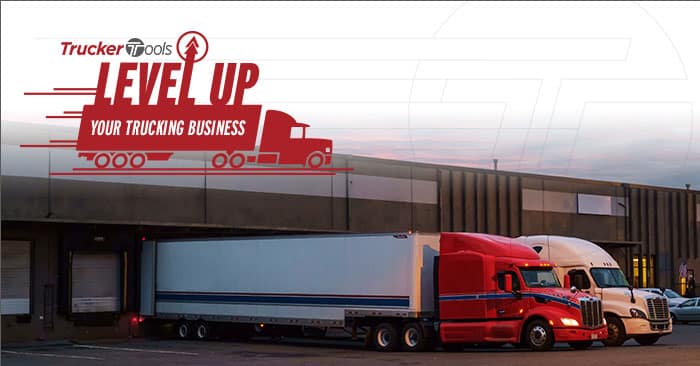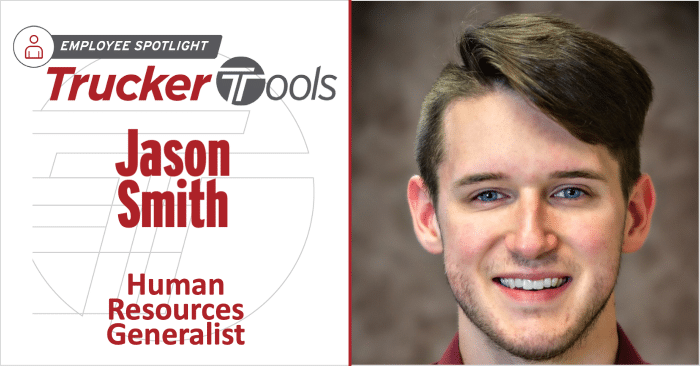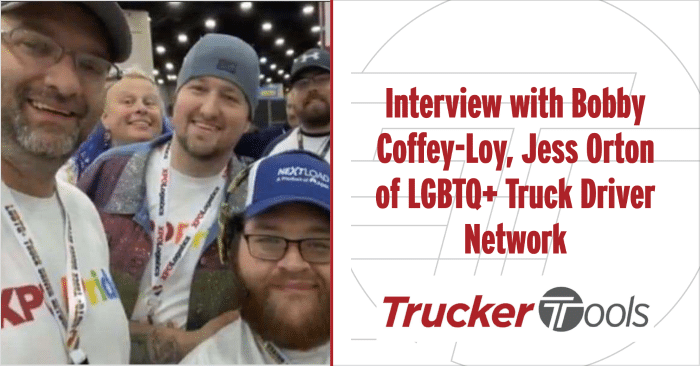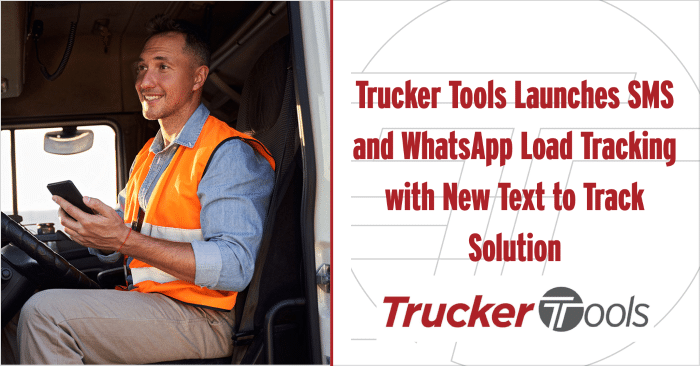Level Up Your Trucking Business: Three Mistakes To Avoid When Starting a Trucking Business

In this blog series Level Up Your Trucking Business, we’re providing building blocks to help you build an owner operator or carrier business that’s profitable, self-sustaining and efficient. Trucker Tools recently interviewed life-long trucker Jamie Hagan, who has been driving a truck and working in the industry for the last 23 years. We spoke with Jamie to learn more about his career in trucking, which has included stints working with his father, driving tanker as a company driver, running as an owner operator and starting his own trucking company, Hell Bent Xpress. Jamie currently has three trucks leased to Cliff Viessman Inc. and is running five trucks under Hell Bent Xpress’ DOT number, with plans to add four additional trucks to HBX by the end of next month.
When we spoke with Jamie, we asked him what advice he has for truckers who are thinking of transitioning from company driver to owner operator, or who are considering starting their own trucking business. Here are Jamie’s three mistakes to avoid when starting a trucking a business.
1. Not Thinking Like a Business Owner
Jamie started driving when he was 16 years old. At the time, the State of South Dakota didn’t have a CDL requirement for intrastate trucking, so he worked with his father, who was driving truck to supplement his income as a farmer. Jamie eventually got his CDL and when he turned 21, he bought his first truck and went out on his own as an owner operator.
“Like most children, I thought I knew better than my dad,” said Jamie. “I thought I could do a better job than he was doing. Mercedes-Benz was financing anybody and everybody in the early 1990s and they owned Freightliner then. I walked into a SelecTruck center and bought myself a slightly used Freightliner with 10 percent down. That three years’ time in the late 90s wasn’t exactly the best in trucking and I wasn’t the best at owning a truck. I was a good truck driver, just not good at ownership. I didn’t run it like a business. I kind of ran it as a personal thing, and that’s what sort of led to the demise of my first time owning a truck.”
“Like most children, I thought I knew better than my dad,” said Jamie. “I thought I could do a better job than he was doing. Mercedes-Benz was financing anybody and everybody in the early 1990s and they owned Freightliner then. I walked into a SelecTruck center and bought myself a slightly used Freightliner with 10 percent down. That three years’ time in the late 90s wasn’t exactly the best in trucking and I wasn’t the best at owning a truck. I was a good truck driver, just not good at ownership. I didn’t run it like a business. I kind of ran it as a personal thing, and that’s what sort of led to the demise of my first time owning a truck.”
2. Skipping Being a Company Driver
After struggling to make it as an owner operator in his 20s, Jamie began working as a company driver for Cliff Viessman Inc. His original plan had been to lease the truck he’d bought to CVI, but his truck at the time was too heavy for the bulk freight he’d be hauling with CVI. Instead, he sold his Freightliner and made an agreement with CVI to come on as a company driver with the understanding that at some point he’d want to start working for himself again. It was a decision that ended up benefiting Jamie in the long run.
“I ended up becoming a company driver for this tank operation that I’m now leased to,” Jamie shared. “I was a company driver for 10 years. I went to work for them as a company driver just to get my head wrapped around what I was actually doing. I learned some valuable lessons there. They are great company pulling food grade tanker all over the nation and Canada. Just a great organization. They taught me a lot about owning a business, truth be told. When I started Hell Bent Xpress, I came at it from a different approach. I tried to go at it as a business versus my personal feelings. I wanted to come out in a better position than I did the first time. The first time I was under the gun and if you start a business broke, it usually doesn’t end well. I wanted to be in a better financial situation when I did it again.”
“I ended up becoming a company driver for this tank operation that I’m now leased to,” Jamie shared. “I was a company driver for 10 years. I went to work for them as a company driver just to get my head wrapped around what I was actually doing. I learned some valuable lessons there. They are great company pulling food grade tanker all over the nation and Canada. Just a great organization. They taught me a lot about owning a business, truth be told. When I started Hell Bent Xpress, I came at it from a different approach. I tried to go at it as a business versus my personal feelings. I wanted to come out in a better position than I did the first time. The first time I was under the gun and if you start a business broke, it usually doesn’t end well. I wanted to be in a better financial situation when I did it again.”
3. Waiting Until the End of the Year To Find Out If You’re Profitable
According to Jamie, one of the biggest mistakes that new owner operators make when just starting out is not monitoring profits and losses. When he started Hell Bent Xpress in 2010, he knew he wanted to do things differently than he had when he’d been an owner operator in the 90s. Jamie said that when he started Hell Bent Xpress, he wanted to be more aware of spending money on things that would provide a high return on investment. He also started using a profit and loss statement and began monitoring his costs of ownership and cost per mile.
“I started keeping an eye on my numbers versus just looking at my profits at the end of the year,” said Jamie. “You need to keep current with your actual costs on a monthly basis, on a weekly basis. That kind of stuff most owner operators don’t do and then they might not even know if they’re making a profit until the end of the year.”
“I started keeping an eye on my numbers versus just looking at my profits at the end of the year,” said Jamie. “You need to keep current with your actual costs on a monthly basis, on a weekly basis. That kind of stuff most owner operators don’t do and then they might not even know if they’re making a profit until the end of the year.”
To learn more about Jamie Hagan and Hell Bent Xpress, visit https://hellbentxpress.com.
For more tips and advice on running a successful owner op business, read Level Up Your Trucking Business: Four Income Tax Pitfalls To Avoid as an Owner Operator. To download Trucker Tools’ free app, visit https://www.truckertools.com/carriers/.





